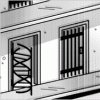http://jnci.oxfordjo...stract/djm268v1
Background: Cannabinoids, in addition to having palliative benefits in cancer therapy, have been associated with anticarcinogenic effects. Although the antiproliferative activities of cannabinoids have been intensively investigated, little is known about their effects on tumor invasion.
Methods: Matrigel-coated and uncoated Boyden chambers were used to quantify invasiveness and migration, respectively, of human cervical cancer (HeLa) cells that had been treated with cannabinoids (the stable anandamide analog R(+)-methanandamide [MA] and the phytocannabinoid {Delta}9-tetrahydrocannabinol [THC]) in the presence or absence of antagonists of the CB1 or CB2 cannabinoid receptors or of transient receptor potential vanilloid 1 (TRPV1) or inhibitors of p38 or p42/44 mitogen–activated protein kinase (MAPK) pathways. Reverse transcriptase–polymerase chain reaction (RT-PCR) and immunoblotting were used to assess the influence of cannabinoids on the expression of matrix metalloproteinases (MMPs) and endogenous tissue inhibitors of MMPs (TIMPs). The role of TIMP-1 in the anti-invasive action of cannabinoids was analyzed by transfecting HeLa, human cervical carcinoma (C33A), or human lung carcinoma cells (A549) cells with siRNA targeting TIMP-1. All statistical tests were two-sided.
Results: Without modifying migration, MA and THC caused a time- and concentration-dependent suppression of HeLa cell invasion through Matrigel that was accompanied by increased expression of TIMP-1. At the lowest concentrations tested, MA (0.1 µM) and THC (0.01 µM) led to a decrease in invasion (normalized to that observed with vehicle-treated cells) of 61.5% (95% CI = 38.7% to 84.3%, P < .001) and 68.1% (95% CI = 31.5% to 104.8%, P = .0039), respectively. The stimulation of TIMP-1 expression and suppression of cell invasion were reversed by pretreatment of cells with antagonists to CB1 or CB2 receptors, with inhibitors of MAPKs, or, in the case of MA, with an antagonist to TRPV1. Knockdown of cannabinoid-induced TIMP-1 expression by siRNA led to a reversal of the cannabinoid-elicited decrease in tumor cell invasiveness in HeLa, A549, and C33A cells.
Conclusion: Increased expression of TIMP-1 mediates an anti-invasive effect of cannabinoids. Cannabinoids may therefore offer a therapeutic option in the treatment of highly invasive cancers.












































